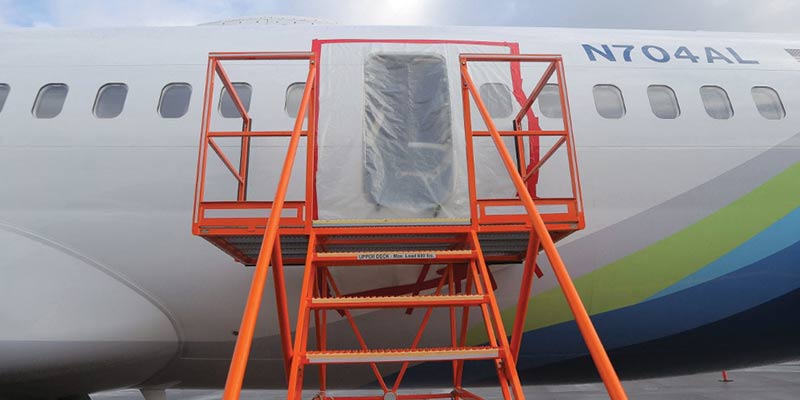- India
- Jan 09
What is the role of DGCA?
• The Directorate General of Civil Aviation (DGCA) said the checks of operational Boeing 737-8 Max planes in the country have been completed satisfactorily.
• The inspection of these planes was ordered following an incident involving Alaska Airlines’ Boeing 737-9 Max aircraft on January 5. A piece of fuselage tore off the left side of the jet as it climbed from Portland, Oregon, en route to Ontario, California, forcing pilots to turn back and land safely with 171 passengers and six crew on board.
• As a precautionary measure, the DGCA said it directed all Indian operators with Boeing 737-8 Max aircraft to check the operation and proper closing of all over wing emergency exits by January 7.
• The checks of the wing emergency exits have been completed for 32 aircraft.
• Indian carriers do not have Boeing 737-9 Max aircraft in their fleets now.
Directorate General of Civil Aviation (DGCA)
• The Directorate General of Civil Aviation (DGCA) is the regulatory body in the field of civil aviation primarily dealing with safety issues.
• It has been accorded with statutory status by Aircraft Amendment Act, 2020.
• It is responsible for regulation of air transport services to/from/within India and for enforcement of civil air regulations, air safety and airworthiness standards.
• It coordinates all regulatory functions with the International Civil Aviation Organisation.
• The headquarters are located in New Delhi with regional offices in various parts of India.
• To keep the statutory provisions abreast with the international standards and the latest developments in the sphere of civil aviation, Aircraft (Amendment) Act, 2020 has been enacted and provisions relating to imposition of financial penalties and compounding of offences have been inserted in the Aircraft Rules, 1937.
• New rules namely the Drone Rules, 2021 have been promulgated to regulate the drone sector.
Functions of DGCA:
• Regulation of air transport services to/from/within India in accordance with the provisions of the Aircraft Rules, 1937, including bilateral and multilateral agreements with foreign countries and the policy pronouncements of the government.
• Registration of civil aircraft.
• Laying down airworthiness requirements for civil aircraft registered in India and grant of Certificate of Airworthiness to such aircraft.
• Licensing of pilots, aircraft maintenance engineers and monitoring of flight crew standards.
• Licensing of aerodromes and air carriers.
• Rendering advice to the government on matters pertaining to civil aviation.
• Processing amendments to Aircraft Act, 1934 and the Aircraft Rules 1937, and other Acts and rules thereunder relating to aviation, for their implementation in India, the provisions of the Chicago Convention and Annexes thereto, and other International Conventions relating to aviation.
• Coordination of the work relating to the International Civil Aviation Organisation and replies to State Letters after consulting stakeholders, wherever necessary including consultation with other agencies.
• Investigation of air accidents and incidents and rendering technical assistance to the Courts/ Committees of Inquiry.
• Regulation and supervision of training activities of flying/gliding clubs.
• Type certification of aircraft.
Manorama Yearbook app is now available on Google Play Store and iOS App Store

